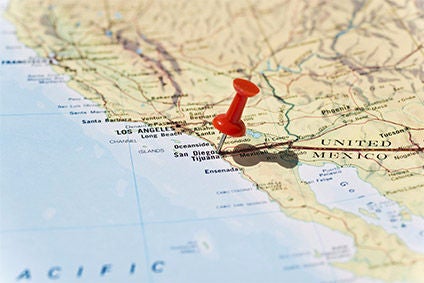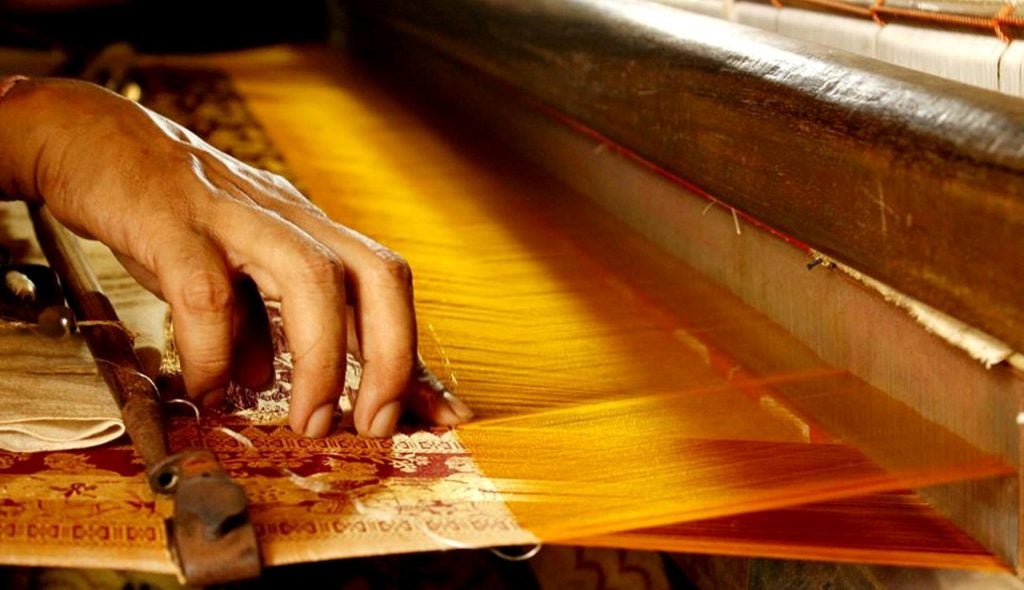
Mexican clothing industry experts hope the current standoff over the ratification of the new United States-Mexico-Canada Agreement (USMCA) will soon be resolved – and that it will cement Mexico’s position as a major apparel exporter to the US and Canada.
The agreement, negotiated last year, has been ratified by Mexico. However, ratification remains held up in the US Congress, and the Canadian government will not formally adopt the agreement until the Americans ratify the deal that will replace the North American Free Trade Agreement (NAFTA).
A spokesperson from the Mexican Chamber of Apparel (the Cámara Nacional de la Industria del Vestido) told just-style the deal will “allow the Mexican apparel industry to continue with the important trade we have with the United States and Canada.”
The spokesperson stresses that rights enjoyed by the Mexican clothing sector under the old agreement have largely been maintained in the new pact.
A trade industry expert from Houston-based think tank, the Centre for the United States and Mexico at Rice University’s Baker Institute for Public Policy, agrees to some extent.
See Also:
The changes under the USMCA for the textiles, apparel “are relatively minor,” says David A Gantz, the centre’s Will Clayton Fellow in Trade and International Economics. However, he notes the changes “reflect somewhat greater protectionism” for the US, potentially dissuading Mexican exporters from selling clothes into the American market.
How well do you really know your competitors?
Access the most comprehensive Company Profiles on the market, powered by GlobalData. Save hours of research. Gain competitive edge.

Thank you!
Your download email will arrive shortly
Not ready to buy yet? Download a free sample
We are confident about the unique quality of our Company Profiles. However, we want you to make the most beneficial decision for your business, so we offer a free sample that you can download by submitting the below form
By GlobalDataThe problem focuses on documentation required under the USMCA to demonstrate that the origin of clothing and their fabrics is from North America and hence qualify for the tariff and quota benefits offered by the trade deal.
Under NAFTA and the USMCA, the textile and apparel sector received extensive protection with a ‘yarn forward’ rule that said qualifying clothes must use yarn, be woven or knitted, cut and sewn, in North America, explains Gantz. “Typically, this meant that apparel and other textile goods used fabric produced in the US while the sewing and other required steps for garment and textile production took place in Mexico.”
However, record-keeping requirements mandated by the USMCA’s additional documentation rules are likely to further increase the costs and complexities of apparel manufacturing to demonstrate compliance, he says.
Industry experts have suggested that such increased costs may discourage North American producers from taking advantage of the potential tariff benefits of the USMCA, leading to greater outsourcing of apparel manufacturing to lower wage countries in Asia.
“This would lead to a potential reduction in sales of fabrics and thread in the USA,” says Gantz.
With half of all American yarn and fabric exports going to NAFTA countries for conversion into finished products like apparel, he notes a risk that Mexico may become less important to US apparel buyers, dampening demand for US textiles.
This is despite the relatively small volume of apparel production in the US – constituting about 3% of the US market, he says “The textile and apparel industry remains one of the most protected sectors” in the US.
Balanced trade benefits
That said, the International Trade Administration of the US government has noted that the new USMCA deal, when finalised and implemented, will create “more balanced, reciprocal trade that supports high-paying jobs for Americans and grows the North American economy.”
And the spokesperson from Mexican Chamber of Apparel is also optimistic about the USMCA, saying Mexico’s competitive advantage comes from being the largest Latin American clothing exporter as well as the sixth largest clothing exporter to the US.
Between January and October 2019, Mexico exported US$3.6bn worth of ready-made clothing to the United States and US$75.12m worth to Canada, according to data from the chamber.
Mexico has been ramping up its labour reforms as part of efforts to ensure the USMCA is ratified.
And groups representing US apparel and footwear brands, retailers and importers have repeatedly called for the trade pact to be made into law.
See also: Why USMCA is a balanced trade deal for textiles and apparel.







